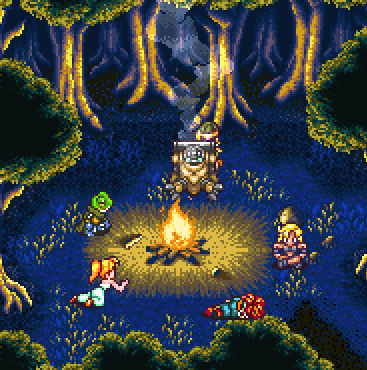- Nvidia what huh consoles huh?
- White on Labor Day? WHOA.
- Bad Namco games? Standard.
- Star Citizen’s piece-by-piece release plan is simply going to create more of a mess than it already has on their hands. Instead of the traditional game development strategy that goes along the lines of build an engine, make the game and then furnish the experience, deciding to go forward with a strategy that’s so backward has to be costing them in the development process. Hell, if they wanted to release a demo in which you could fly around a space station and not do anything amazing like warp around or engage other ships, that would be fine. At this point, they’ll release a demo like that, sometime after they release the hangar that allows a player to get attached romantically to the idea of one day flying that ship around.
I guess I just don’t get the hype behind this game. I just want Freespace 3 or a new Wing Commander game.
- Eedar just published the most obvious report about identifying who would pay the most for casual mobile games with in-app purchases. Kathleen’s finger pointing and line at the end is the real Inception moment, here.
- Ohhh, that makes sense. AMD has the two biggest graphical chip manufacturing deals of the decade, while Nvidia was left behind after being denied a console chip furbishing gig. Yeah, free games with graphics cards might sound like a cool deal for PCmasterrace gamers, but that’s about as far as that scheme could go, unless they start bundling their triple-A titles with new PCs.
- Amazon what huh making bundles of money huh?
- Pre-recorded show joke!
- FFXIV is bad, but Magitek armor? YES, PLEASE.
Tag Archives: Final Fantasy
Progress Quest is better than your DLC-laden piece-of-shit guided storytelling-experience you call a RPG.
It’s true.
 I don’t want you to misunderstand: Progress Quest is a game. It’s a pretty much everything that you want out of the traditional roleplaying experience. You can min-max characters to great effect like in Mass Effect and Dungeons & Dragons. It even takes a hint from MMORPGs as permanence is non-existant and actual consequences for player death have been completely removed—your character can never die!
I don’t want you to misunderstand: Progress Quest is a game. It’s a pretty much everything that you want out of the traditional roleplaying experience. You can min-max characters to great effect like in Mass Effect and Dungeons & Dragons. It even takes a hint from MMORPGs as permanence is non-existant and actual consequences for player death have been completely removed—your character can never die!
Now, some of you might be laughing out loud after reading that last paragraph of thought and that’s okay. That being said, let’s seriously consider how Progress Quest compares to something like The Elder Scrolls V: Skyrim.
TESV (because calling it Skyrim doesn’t do the game series justice) has a variety of races that the character can choose from. This is the first major decision made by the player in the game, and the choice between the ten different races to play as is often the first stop on the min-maxing train for knowledgable players looking to begin subsequent playthroughs of the game. In Progress Quest, you’re given a even more weighty decision between 21 distinct races to play as. Half Orcs, Low Elves, Double Hobbits and Demicandians make up part of that lengthy list. Additionally, Progress Quest provides a list of 18 classes as part of the character creation process, something that TESV left out in favor of allowing its story of an universally-capable hero to take hold. That’s right—players are not allowed to pick how classy their Dragonborn character is allowed to be and it’s a damn shame that Bethesda held back in favor of being more approachable for the badgamers of the world.
After character creation is where the real fun begins. Take a look at all of these lists you’re responsible for in Progress Quest:
Look at everything! The progress bars and progress you can make! The bars do nothing but build up, it’s like you were actually grinding the character’s progress yourself, but… you’re not doing anything! It does the grind for you! This is a dream come true for RPG players and fans that simply don’t have the time to work through a story or invest their attention into a meticulous mystery to solve.
Seriously, though. I’m a half-man robot monk with skills like Summon a Bitch VI—that’s ten times better than being able to summon an atronach that can only sustain itself for a couple of minutes like some Dragonborn could.
All of these skills help my character progress through the game just like any other adventuring RPG—kill monsters, sell loot, get better monster killing equipment and repeat. It’s almost as if by simply leaving the game open, the character will find a way to progress by itself.
But how is this different from any other modern RPG? With rare exception, a lot of these recent games are generally the same. I pick on TESV quite a bit, but that’s because I don’t have the ADD to play an RPG without other people taking part in the fun. However, other titles like the recent Final Fantasy games and the BioWare titles rely on telling the player how to go about having fun in their game instead of just throwing the player into an experience from the get go.
Maybe I’m just a fan of the older style of RPGs that I can’t sit down and spend the time to find out why the modern games are fun in their own right because there are too many cutscenes or a lengthy training regiment or something.

